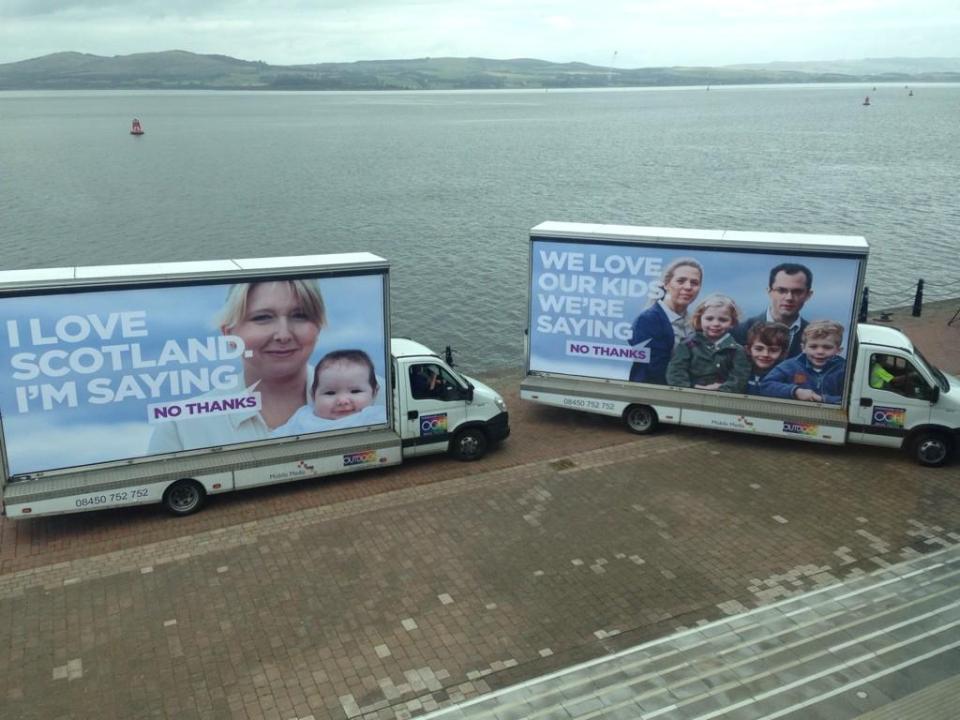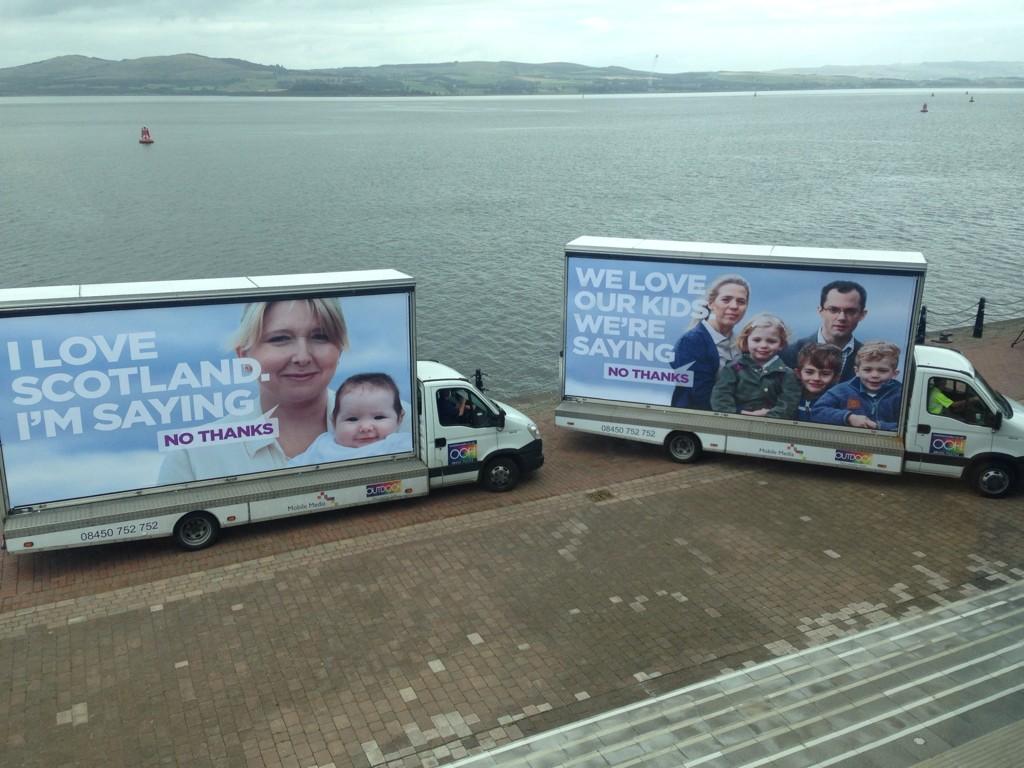I don’t want to appear too immodest but, you know, I told you so. Back in February I wrote an article for this paper warning that Scotland’s independence referendum would be a damn close run thing. That was true then and it remains true now.
Today’s YouGov poll reports that, once undecided voters have been removed from consideration, 47 percent of Scots intend to vote for independence while 53 percent will back the Unionist cause. If the odds remain against Alex Salmond it’s also the case that the price on independence is shortening. Paddy Power’s over/under calculation of a Yes vote now stands at 46.5 percent. A few weeks ago it was at 42.5 percent. It’s a kind of quickening.
Today’s poll is significant, as James says, because YouGov had hitherto been the pollster least likely to produce results that offered the Yes campaign much encouragement. You know it’s bad when Better Together insiders give up trying to deny the reality that the nationalists have enjoyed a polling bounce. Indeed, last night there was a palpable, dread-filled sense in Unionist circles that expressed itself in variations of a very simple verdict: Oh fuck.
True, the poll of polls offers Unionists some encouragement but, like so much in the No campaign, that’s something that’s more comfortable clinging to the past than looking to the future.
The irony, perhaps, is that as the referendum date approaches the campaigns are converging, not diverging. The latest No campaign posters (pictured above) have been widely mocked by Yessers. That was to be expected. Nor have they much impressed people who might, however inelegantly, be deemed high-information voters. But they are a means by which the No campaign wishes to play the nationalists at their own game.
That is, they seek to use patriotism against the nationalists. It’s hardly subtle but logic and reason and policy be damned, this is a bloody fight about emotions. It’s about, Better Together thinks, giving voters permission to cast a “patriotic” vote for No. “We’re not saying you don’t love your country if you’re voting Yes” one insider says, “but we’re not having a conversation with SNP voters. We’re not competing for them, we’re competing for undecided voters.” They remain confident, despite everything, that these messages “work incredibly well with the people they are targeting”. The risk, of course, is they may drive another group of waverers towards a Yes vote.
In any case if, as the old saw has it, there are precious few atheists in foxholes, there are few remaining undecided voters either. Perhaps no more than 300,000 (on a high turnout) and possibly as few as 150,000 (on a turnout of 75 percent). This isn’t a normal political campaign in which voters have a range of options including, rather importantly, the choice to stay at home. Every vote might actually matter on September 18th. The greatest comfort for Unionists is that, on present evidence, Yes still need to win the vast majority of those remaining undecided voters. Assuming, that is, there’s no shift elsewhere.
That’s the theory, at any rate. It is another reminder, however, that the No campaign has rarely set the agenda. Instead it has been forced, much of the time, to react to whatever the Yes campaign has said.
In some respects that was inevitable. It is the Yes campaign that must make the case for independence and the No side has had little choice but to object No, hang on a minute. What about this? Even so, this has been a structural weakness. It encourages the suspicion that the No campaign is essentially hanging on and hoping to cross the line just half a step ahead of the nationalists. Any kind of win will do, even a narrow one. Then again, a narrow one might yet be the only kind available. (By narrow, I mean anything less than a dozen points.)
Emotion was always going to be a large part of the Yes campaign’s closing argument. This is a vote for Scotland and her infinite future or a vote against Scotland and in favour of a thin and narrow prospectus for just the same-old politics.
It’s not, in the end and despite the claims made by both campaigns, really about policy so much as it’s a matter of Them and Us. A question of how you feel and what you believe more than a cost-benefit analysis of a detailed prospectus for life after independence.
There is a sense, I think, in which many voters have tired of the endless statistical wrangling that’s supposed to predict – and prove! – the future one way or the other. If true, that’s a win for the Yes campaign since sidelining those concerns – particularly on the economy – opens a path to voters who quite like the idea of independence – the idea of Scotland! – but are nervous about how, or even whether, it might actually be accomplished.
From a Unionist perspective, it does not help that, in general, London has been useless. Even now Westminster seems more interested in the Clacton by-election than in the referendum that will decide the future stability and integrity of the United Kingdom. Viewed from North Britain, this seems desperately petty and small. There is, whether one likes it or not, a sense that perhaps they’re just not that into us. At the very least they appear to take us – and the result of the referendum – for granted. And this, naturally, cheers Yessers.
Then again, this can be a lose-lose situation for Unionists. London’s apparent indifference is galling but there are moments when you could be forgiven for thinking indifference is at least preferable to the ignorance – and indiscipline – shown by London-based politicians when they do speak about Scotland. Yes, Boris, that means you (though you are not the only guilty party).
David Cameron’s Scottish Problem is well-known and has been the subject of much analysis. But if Cameron’s difficulty north of the Tweed and Solway is at least understandable, Ed Miliband’s lack of commitment to the Unionist cause has been disgraceful. You’d hardly know, right now, that Labour are likely to be the largest party in Westminster as soon as next May. There are Labour activists in Scotland who wonder why they seem, as they see it, to have been deserted by Miliband and his cabinet.
Perhaps this is the ‘kick up the arse’ Better Together needed. Perhaps the frisson of nervousness now felt in Unionist circles is just a pre-referendum wobble. The odds do still, after all, favour a No vote.
Perhaps voters will flirt with divorce before deciding that, actually, their marriage deserves another go. But, again, that’s not something that can be taken for granted. It has never been, of course, which leaves one to wonder why so many did take it for granted for so long?








Comments